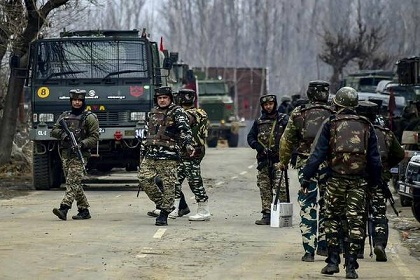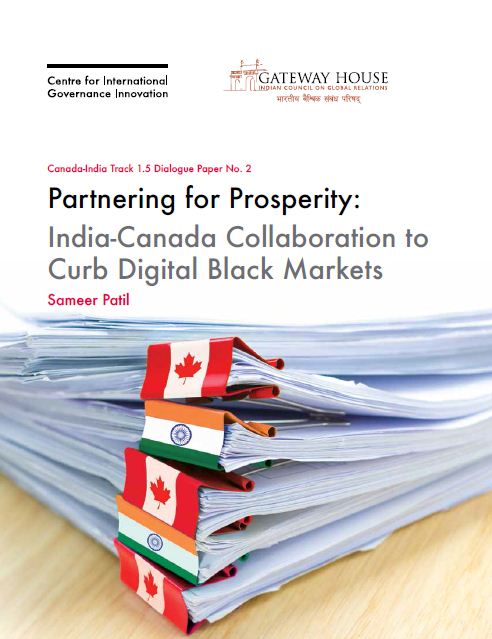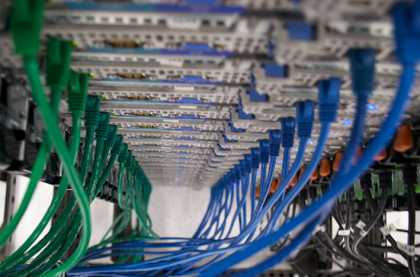 Courtesy: The Hindu
Courtesy: The Hindu
India has used military and diplomatic offensives against Pakistan as a response to the February 14 terrorist attack in Pulwama, Jammu and Kashmir. There are two more options available - legal, through sanctions, and economic - to curb Pakistan's dangerous adventurism. Gateway House explores both in the infographic below
 Courtesy: Gateway House & CIGI
Courtesy: Gateway House & CIGI
The virtual computer world holds tremendous potential for harm infliction, and cybercrime is a growing concern for India and Canada. Both countries have cracked down on digital black
markets, where transactions for contraband and illegal services take place, but such cooperation can be further deepened through advanced use of technology and informal collaboration, for example, thereby also contributing to international security at the multilateral level
 Courtesy: UNCTAD
Courtesy: UNCTAD
The G20, which constitutes leading digital and industrial powers, has failed to pay enough attention to cyber security, particularly the security of critical financial infrastructure. In a rapidly digitising world, this is the right time for a G20 framework that will help ensure the cyber safety of banks, stock markets and payment systems.
 Courtesy: Gateway House
Courtesy: Gateway House
The infographic illustrates the extensive G2G engagement between India and Japan, which undergirds the strategic partnership.
 Courtesy: India Times
Courtesy: India Times
The recent opening of the Kartarpur corridor in Punjab and the release of a Canadian parliamentary report on the security breach during Prime Minister Justin Trudeau’s India visit are important developments. They present a good opportunity for New Delhi to step up cooperation with Ottawa on countering terrorism and violent extremism
 Courtesy: Financial Express
Courtesy: Financial Express
India can draw Canada in a new direction – away from its trans-Atlantic fixation, into the Indo-Pacific and a tech and resources partnership that will benefit both democracies
 Courtesy: Debating Security Plus
Courtesy: Debating Security Plus
From 19-20 June, Brussels-based think tank, Friends of Europe organised an online brainstorming on global security issues called Debating Security Plus 2018. As part of this, Gateway House co-moderated the discussion on hybrid and asymmetric warfare. Below is the summary of that discussion, from the final report of the Debating Security Plus.
 Courtesy: Indian Ocean Conference
Courtesy: Indian Ocean Conference
If India wants to become a serious Indo-Pacific player, it has to prioritise implementation of the SAGAR initiative, look beyond the Quad to partner with smaller littoral states and provide alternatives to China’s investment strategies. This was the message from the recent Indian Ocean Conference in Hanoi, Vietnam
 Courtesy: MEA Flickr
Courtesy: MEA Flickr
The Indian Ocean has served as a keystone of global politics, economics and culture for centuries. In modern times, after World War II, it emerged as a focal point for great power competition and subsequently, of global commerce as the pivot of economic growth shifted from Europe to the Asia Pacific, a feature which has since remained constant.
 Courtesy: Wikimedia Commons
Courtesy: Wikimedia Commons
Cyber space is a new global common that defies formal governance. Its interconnectedness makes it full of opportunity, yet vulnerable. Attempts to regulate it have seen setback due to the differing visions of major powers and developing countries. India, an emerging economy with a sophisticated technology industry, is well positioned to shape the governance of this global common












